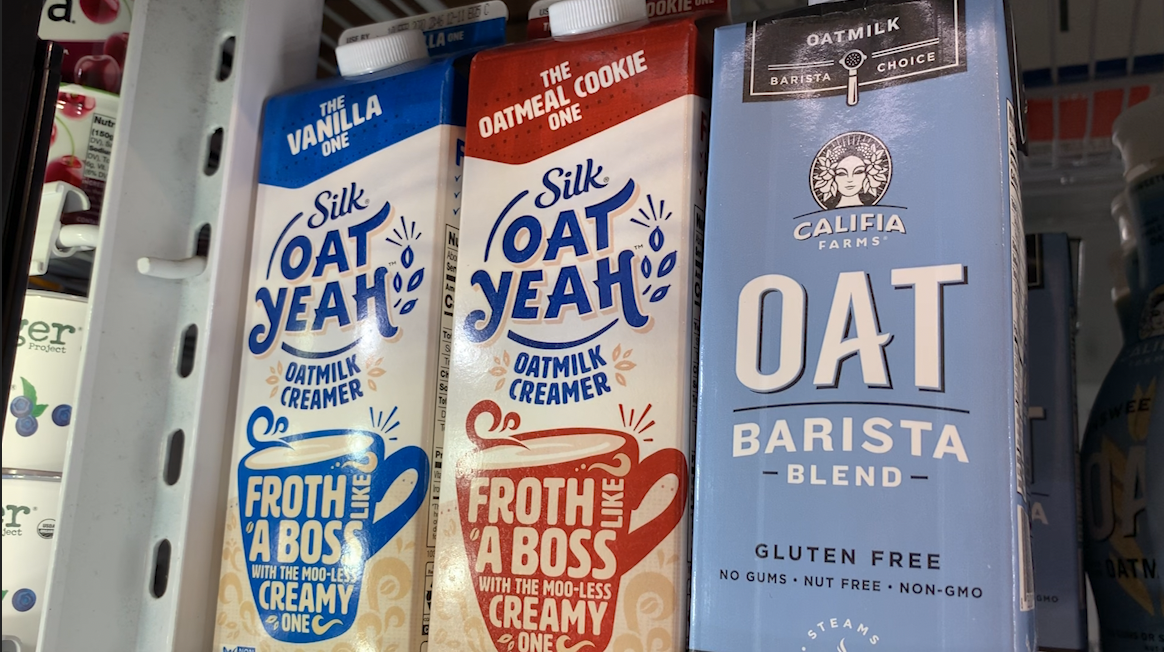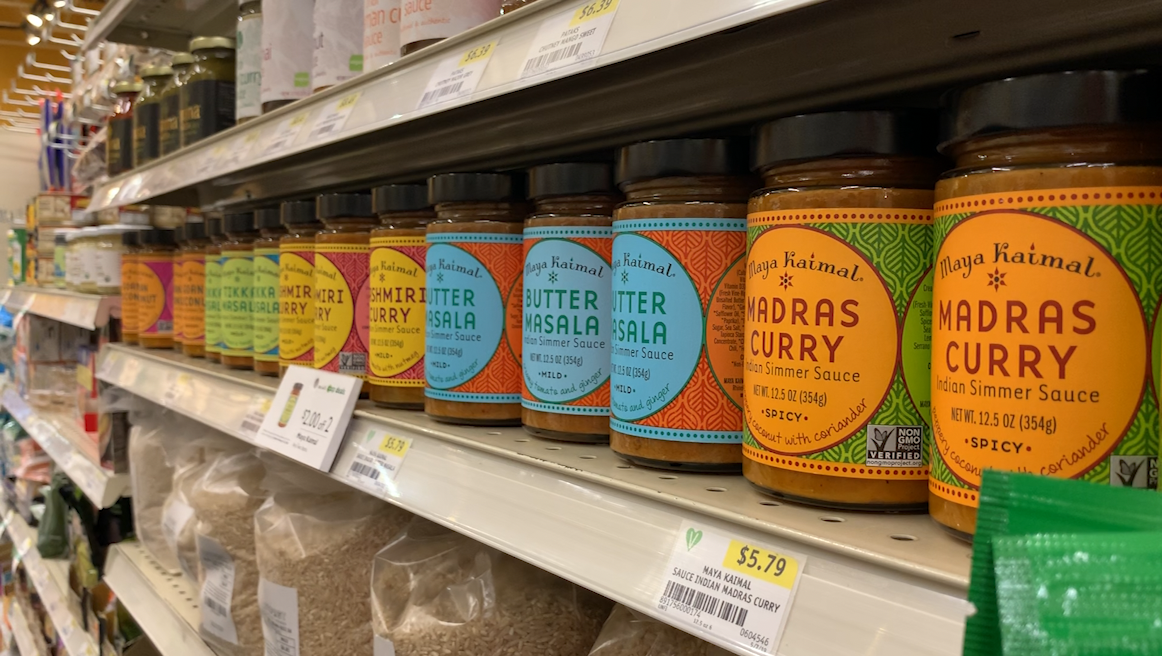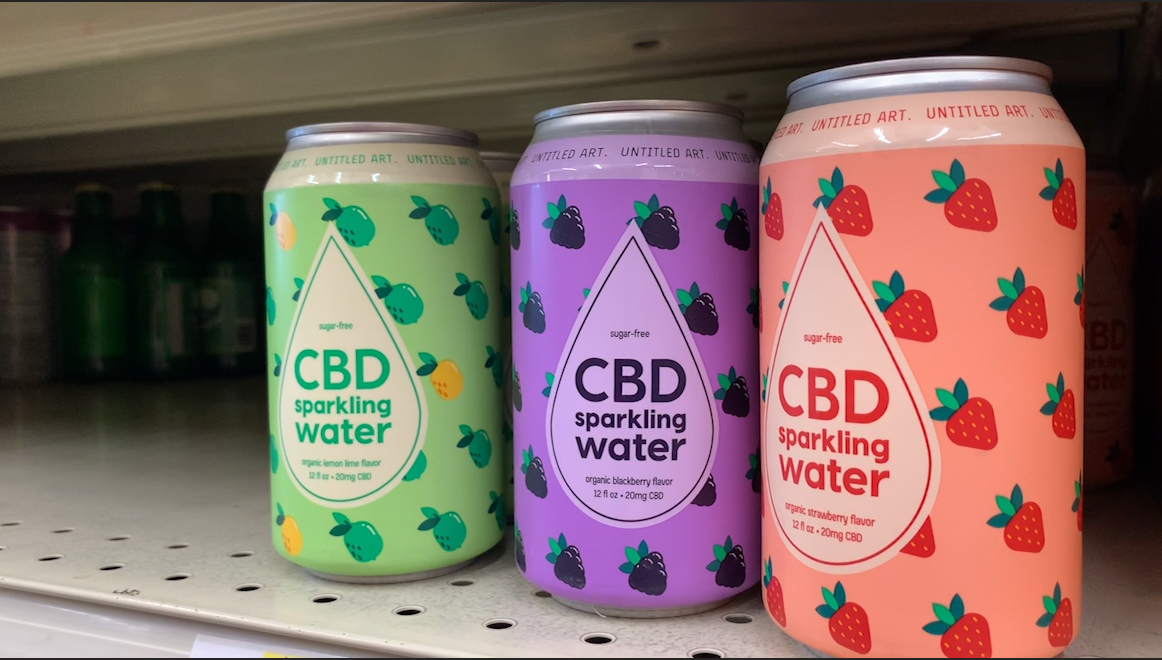WISCONSIN (SPECTRUM NEWS)— Outpost Natural Foods shares 2020 grocery trends across the state of Wisconsin.
For those who take frequent trips to the grocery store, you may see some new things popping up on the shelves.
A new year, calls for a fresh start, which is why Margaret Mittelstadt, director of community relations for Outpost Natural Foods is sharing what you may see trending this year.
According to Outpost Natural Foods, trends for the state of Wisconsin in 2020 include a lot more plant based items.
"This may be taking the place of meat or dairy or wheat products as a way to explore being flexitarian or the sometimes vegetarian," Outpost Natural Foods director of community relations, Margaret Mittelstadt saidShe says people may be taking the opportunity to switch out the traditional form of dairy for some alternatives.
"It’s unexpected, where you may not think that I am going to find vegetables in my frozen dessert," Mittelstadt said.
Outpost says one of the trends they are forecasting is a switch over to oats.

"The oat milks are really coming on scene as being a really great source of non-dairy beverage where you are getting a little extra protein along with it," Mittelstadt said.
This means oats will begin to compete with the now standard almond milk and soy milk you find in stores.
Now for those looking to ditch meat and find plant alternatives, there are items like jack fruit and other plant based items that can act as meat.
For customers like Terry Strode, who is trying her best to eat healthy, seeing more options on the shelves is a plus.

"I don't buy much meat but I do eat things like walnut burgers which I think are just a great substitute for hamburgers," Shopper, Terry Strode said.
She says seeing more of these options down the aisles when she shops are going to be a benefit moving forward.
"I wish this was something that would have been around 30 years ago and maybe I would be healthier right now," Strode said.
For shoppers who are looking to explore in 2020, Outpost says more world flavors will be a common trend this year.

"From India and from Thailand, a lot of these authentic cuisines comes in sauce and are really time saving," Mittelstadt said.
Allowing customers to step outside of their flavor comfort zone and get a taste of what they world has to offer.
Another trend Mittelstadt metnions is CBD. She says you will begin to see this infused in more items throughout the next year.

"You are finding it even in sparkling water so it’s another added ingredient to try out the benefits of CBD in a traditional source,"
Outpost says CBD will become more common in drinks and other traditional grocery items as a way to try it in a more natural way.
Here is a full list of Outpost Natural Food’s 2020 grocery trends:
Promoting the Plants
Whether you call it “the sometimes vegetarian” or “flexitarian”, or folks that follow a meatless Monday or weekday vegetarian plan, this trend continues. From health reasons to enjoying exciting new flavors, people are choosing plants first in growing numbers. Expect to see more innovations in products and flavors that go beyond burgers, and even foods packed with hidden veggies like ice cream, condiments, and sauces.
Brussels sprouts are the new kale
Move over kale, there’s a new green in town! Look for pre-cut, prepackaged and shredded pre-packaged brussels sprouts in fresh produce and along with “sauté kits” – fresh precut brussels sprouts bagged together with a sauce or with pre-cooked bacon or prosciutto bits for convenient cooking at home.
Cauliflower keeps kicking carbs to the curb
Cauliflower (and other veggies) will continue replacing traditionally carb-laden foods like crusts, crackers, flatbreads and snacks. Also look for shelf stable heat & serve convenience side dishes in pouches based on “riced” veggies like cauliflower, sweet potato and more.
Pass the Peas and the Oats
Oats and green and yellow peas are the new almonds and we’ll be seeing more dairy alternatives from ice cream to sour cream, and even cheese using these allergen-free foods as their base. Plus, jackfruit, pea proteins, and legume proteins will grow as the basis for meat alternatives with many more options and brands from which to choose.
Magic Mushrooms
Dried as snacks, brewed as teas or caffeine-free coffee substitutes, and even cocoa beverages, mushrooms are popping up everywhere because of their meaty rich flavors and their potential adaptogenic health benefits. Not only in beverages and elixirs, these fungal wonders are being used as meat replacements and in blended products that are part meat, part veggies, part mushroom. Shiitake bacon anyone?
I’ll Drink to That!
Forget carbonated soda pop. In its place we’re seeing low-sugar, still or carbonated, elixirs and tonics featuring herbs, as well as innovative single serve “mocktail” style alcohol-free drinks. And don’t diss dairy, ultra-filtered milk – aka diafiltered – is the new darling of the work-out class. Cow’s milk is specially filtered to give it 50 percent more protein, 50 percent less sugar, and no lactose with a creamier, dreamier taste. Water is still king, but folks are using their own bottles or choosing new aluminum bottles that are reusable or easily recycled.
Think Locally – Eat Globally
The interest in world flavors isn’t waning but shoppers are looking for more convenience options for quicker meals. Ready-to-use globally inspired broths fill that niche with varieties suited for use in many dishes from Asian-style pho and Hispanic-style posole along. Simmer sauces and marinades are also popular and easily allow for home chef customization for dishes inspired by African to Thai cuisine. Even snacks get into the game with turmeric, curry and Korean flavors as some of our new favorites.
CBD – Hemp and beyond
We expect to see more foods and personal care products from hemp, with hemp, and containing CBD to continue to expand. CBD bath salts are a thing! What’s super new on the scene right now is CBD isolated from non-hemp sources that contain zero THC such as citrus. This will create a new and even wider audience for CBD products and could sidestep the regulation controversy with hemp-based products.



